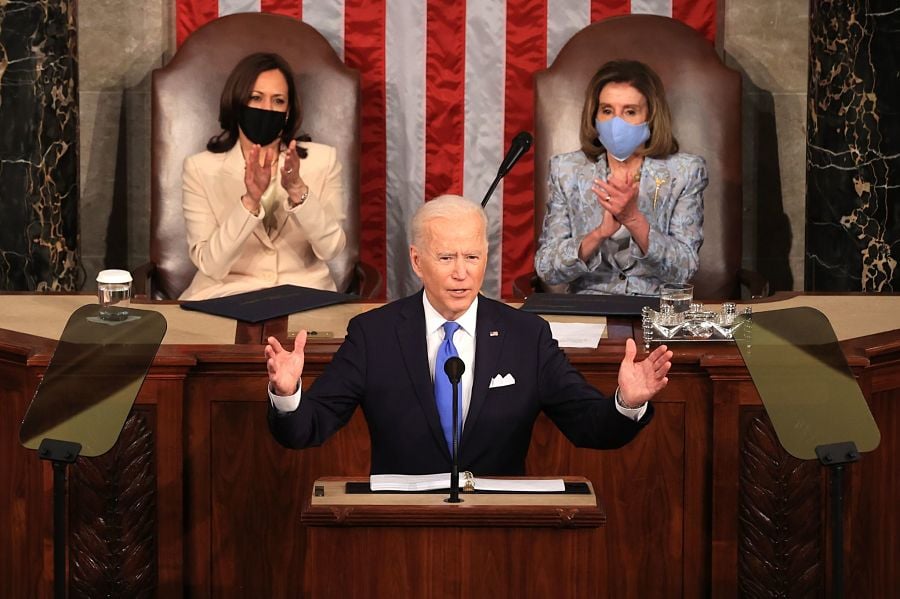

An article posted this week by ProPublica asserting that several billionaires typically pay little to no federal income tax while their wealth grows based on investments could add momentum to the movement to increase capital gains taxes.
But even as the June 8 analysis — based on tax returns of Jeff Bezos, Elon Musk, Warren Buffet, Michael Bloomberg and others — has stoked a debate about whether the wealthy are paying their fair share of the national tax bill, political obstacles remain for legislation that would boost taxes on the highest earners.
President Joe Biden has proposed boosting the capital gains rate to over 40% for people earning more than $1 million annually, ending the step-up basis for inherited assets by taxing appreciation of more than $1 million and raising the top ordinary income tax rate to 39.6% for people making more than $400,000. The increases would help fund social spending programs.
Narrow Democratic majorities in the House and Senate make passage of the tax hikes a heavy political lift. Much of the resistance could come from moderate congressional Democrats.
The ProPublica article could start to sway that key group of lawmakers, said Jorge Castro, a member at the law firm Miller & Chevalier.
“Now that the article has shed light on the issue, it could change the political calculus for those moderates,” said Castro, a former Democratic aide on the House Committee on Ways and Means and the Senate Finance Committee. “That could add momentum to those congressional Democrats who want to raise taxes on the wealthy.”
A poll released this week by Americans for Tax Fairness shows 43% of respondents agreed that it is “ensuring the wealthy and corporations pay their fair share in taxes” should be an “extremely important priority” for Biden and Congress. Another 25% said it is a “very important.”
Americans “already think the tax system is rigged,” said Frank Clemente, executive director of Americans for Tax Fairness. “They think the rich don’t pay enough in taxes. This article just confirms it with concrete data.”
But another advocacy organization questioned ProPublica’s calculations.
The piece “suffers leaps of logic as wide as the Grand Canyon and as shallow as the country creek,” said Pete Sepp, president of the National Taxpayers Union.
Chris Edwards, director of tax policy studies at the Cato Institute, a libertarian think tank, constructed a chart showing that the Congressional Budget Office and the congressional Joint Committee on Taxation, among other groups, have calculated that the top 0.1% and 0.01% of wealthy Americans pay higher income tax and total tax rates than ProPublica determined.
Sepp said members of Congress rely on CBO and JCT estimates when writing legislation. That adds another challenge for pushing through legislation to increase taxes on the wealthy.
“There’s growing recognition even among Democratic tax-writers that not all of these proposals can fit together,” Sepp said. “It seems dubious that the entire Biden tax agenda could be enacted, especially at once.”
There’s almost no chance any Republicans will support the Biden tax proposals. If Democrats use a parliamentary maneuver to avoid a filibuster in the Senate, all Democrats in the House and Senate would have to be on board.
“I’m confident in the end we’ll get enough Democrats to support the Biden plan,” Clemente said.
The prospect of tax hikes on the wealthy has dominated conversations this year between financial advisers and their clients.
Matt Chancey, a wealth manager at Dempsey Lord Smith, said the billionaires cited in the ProPublica article are “job creators” who are taking risks to build businesses. “They’re swinging for the fences,” Chancey said. “They’re being rewarded for being investors. Most people don’t invest. They just consume.”
Raising capital gains taxes won’t affect billionaires like the ones cited in the ProPublica article, said Matthew Heckler, director of corporate executive services at Telemus Capital.
“The mega-, mega-wealthy can wait it out … until the next [presidential] administration to see if the tax rates are something more palatable,” Heckler said.
People who have between $2 million and $20 million in net worth “are under a lot more pressure” because they might have to sell businesses or other assets in the next couple years, Heckler said. He will help them be prepared to respond to that reality.
“We’re ready,” Heckler said. “We’ve had those conversations. The documents are drafted.”
Another debate the ProPublica article has stoked is whether to implement a wealth tax. But that requires a longer political struggle, Clemente said.
“It’s going to take a sustained campaign around the wealth tax to get the votes needed to pass Congress,” he said. “It’s not in the center of the debate at this point in time.”

Relationships are key to our business but advisors are often slow to engage in specific activities designed to foster them.

Whichever path you go down, act now while you're still in control.

Pro-bitcoin professionals, however, say the cryptocurrency has ushered in change.

“LPL has evolved significantly over the last decade and still wants to scale up,” says one industry executive.

Survey findings from the Nationwide Retirement Institute offers pearls of planning wisdom from 60- to 65-year-olds, as well as insights into concerns.
Streamline your outreach with Aidentified's AI-driven solutions
This season’s market volatility: Positioning for rate relief, income growth and the AI rebound
